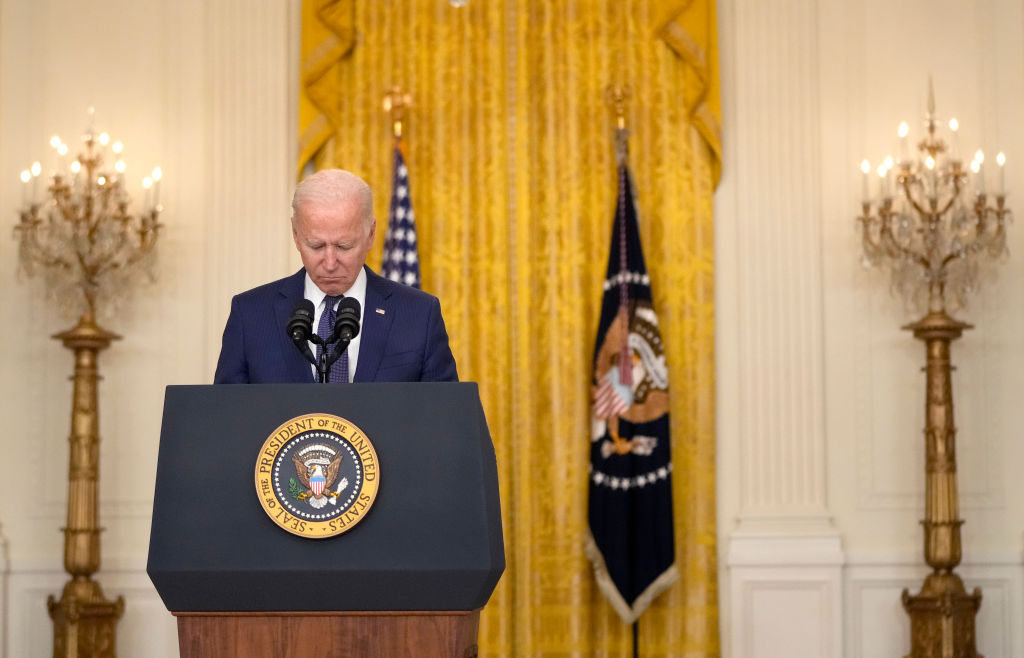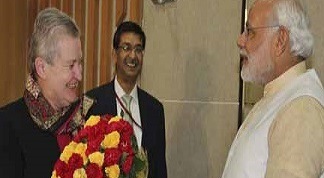Afghanistan Articles Newspaper Article 30/08/2021
The multiple suicide attacks at the Kabul airport on August 26, killing over 170 people, including 13 American soldiers, and injuring over 200, are stark reminders that the Afghan capital remains vulnerable despite the Taliban’s control of the city. They also warn that ISIS-K poses a veritable threat even if the U.S. troops leave Afghanistan.
The media reports state that the U.S. had issued a security alert a couple of days before the suicide attacks by the ISIS-K terrorists who reportedly have owned the responsibility. As the evacuations and foreign troop withdrawals are planned to be completed by August 31, a deadline agreed with the Taliban, such attacks are bad for the Taliban and the Americans.
The suicide attacks indicate that grave threats are looming not only at the Kabul airport but elsewhere in the coming days and weeks; a lot would depend on how the Taliban control the Al-Qaeda or ISIS-K in Afghanistan.
Americans have already started reminding the Taliban that as per February 2020 agreement with the Trump administration, they are bound not to allow Al-Qaeda/ISIL to use the Afghan soil. But the question arises whether the U.S. administration has fulfilled its part of the deal by approaching the UN to delist the top Taliban leadership from the UN sanctions.
Secondly, the Taliban are still busy in dialogue with other Afghan stakeholders to form an inclusive government and is subjected to financial sanctions. The U.S. has frozen $9 billion of the Afghan Central Bank reserves held by the Federal Reserve Bank of New York. The International Monetary Fund has also blocked Afghanistan’s access to about $460 million in emergency reserves.
According to the New York Times, money from an agreement reached in November 2020 among more than 60 countries to send Afghanistan $12 billion over the next four years is also in doubt.
Almost three quarters of public spending in Afghanistan is financed by grants, which is powerful leverage for Washington to negotiate its terms. When the Taliban are busy consolidating their hold, imposition of sanctions would only make their task difficult in running the affairs of the government. If the Americans persist in making things difficult for the Taliban, the latter may adopt a non-cooperative attitude, including going slow in taking action against the terrorists.
Most importantly, counterterrorism is an international effort. Suppose the Taliban are to deliver on counterterrorism as if Al-Qaeda or ISIS-K is concentrated in Afghanistan. In that case, they have to be made partners, not a target.
If subjected to sanctions, how the Taliban will participate in the future dialogue on terrorism or render cooperation under such conditions are the issues deserving due consideration by the Americans and other stakeholders.
Understandably, domestic politics within the U.S. and major NATO countries are now dictating the post-withdrawal debate in the major capitals, especially those involved in Afghanistan in the past two decades. Both Republicans and Democrats are demonizing each other while ignoring that the withdrawal issue enjoyed bipartisan support.
If Donald Trump administration signed the agreement with the Taliban and accepted the latter as a stakeholder to the dispute, President Biden endorsed the agreement in its entirety. In doing so, both the administrations left out the Ashraf Ghani government in the cold. It was a clear message to the Ghani government that it had lived its utility. U.S. President Joe Biden bows his head in a moment of silence as he speaks about the situation in Kabul, Afghanistan from the East Room of the White House in Washington, D.C., August 26, 2021. /Getty
U.S. President Joe Biden bows his head in a moment of silence as he speaks about the situation in Kabul, Afghanistan from the East Room of the White House in Washington, D.C., August 26, 2021. /Getty
Consequently, the Afghan government started crumbling down, so the entire country surrendered to the Taliban without much resistance. The question arises whether it was finesse displayed by the Taliban in convincing the Afghan National Defence Forces (ANDS) to surrender, or was it the Taliban’s military prowess implemented with speed and sophistication. However, the U.S. commentators are still scrambling to find the real reasons behind the Taliban’s spectacular return.
No doubt, the real test for the Taliban begins now that they are in power. The Taliban may have realized that major ethnic groups and religious minorities have asserted their identity and have strengthened their control over their respective regions during the past 20 years despite a centralized presidential system of governance.
If the Taliban try to impose their will in the name of “inclusiveness,” they are likely to face resistance which may gain momentum if similar grievances are faced by other ethnic or religious groups. In all probability, these disgruntled groups may seek the support of external sources such as the U.S., EU and India.
The foremost challenge that the Taliban led dispensation may face is the country’s economic condition, which would directly impact the public opinion about the Taliban. By freezing the Afghan reserves worth $9 billion, the U.S. has already warned the Taliban about their intention to create difficulties if the latter displays a non-compromising attitude towards the ethnic and religious minorities.
However, the U.S. and allies and former officials of the Ghani government will have to explain the country’s economic plight where 60 percent populating lives below the poverty line. The claims that the U.S. had spent $146 billion to establish Afghan armed forces and on nation-building present a sorry state of affairs.
A reality check would be needed to see why the country remains unstable after 20 years of engagement with the international community in Afghanistan and faces the danger of a humanitarian crisis. Once loathed and despised, the Taliban are back again, and the ordinary Afghans are left to the mercy of international donations.
Indeed, a humanitarian crisis has to be addressed on an emergency basis. Pending international humanitarian assistance to mobilize, the immediate neighbors of Afghanistan will have to intervene to address the urgent needs of the vulnerable Afghan population, especially the women and children who had no hand in the fighting but have been the worst sufferers. The same goes for the rest of the international community to step up and save millions of Afghans from hunger and pandemics.
Concurrently, other measures would be needed to consolidate peace and security in Afghanistan, including a dialogue at the international level with Taliban.
Note: This article appeared on China Global Television Network (CGTN), dated 30 August 2021.
Disclaimer: The views expressed in the article are of the author and do not necessarily represent Institute’s policy.


